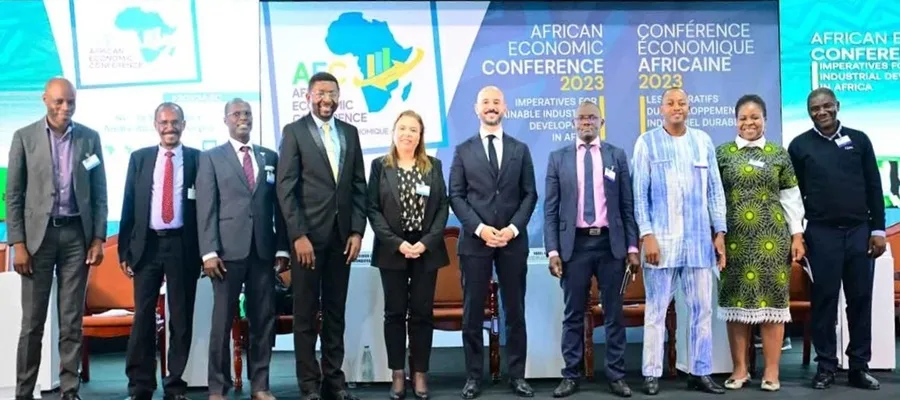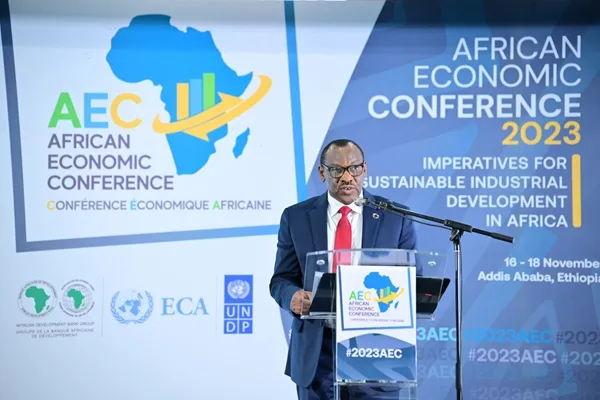Human Capital Key for Africa to Escalade the Global Value Chains
During the African Economic Conference 2023 (#AEC2023), experts came to the conclusion that one of the key success factors for the industrialization of Africa is the nurturing and optimizing of its human capital.
As things stand, Africa contributes a mere 1.7% of the Global Value Chains (#GVC) despite making up nearly 1/7 of the world population and possessing rich reserves of raw materials. Economics Professor Bernard Nguekeng of Yaounde University II highlighted that the industrialization of Africa is a “key factor in job creation, improving productivity and strengthening exports.” Industrialization is one of the primary objectives as per AU #Agenda2063, is aligned with UN #SDG and rightly forms part of the AfDB five priority pillars (#Hi5) for action.

Professor Bernard Nguekeng conducted a study of Industrialization across 51 countries in Africa over the period 1996 to 2018. He found ‘higher upstream and downstream participation in Global Value Chains in Northern and Southern Africa, with lower participation in Central Africa.’
During a panel discussion, the experts agreed that Africa must put more effort and energy into upskilling its workforce, while developing the infrastructure to promote wealth-generating activities. Each country must come up with tailor-made policies to take advantage of its comparative advantages and incentivize innovation and competition to foster local value addition (#LVA) and graduate to higher value-add levels of the industry.
Economist Wissal Sahel of Mohammed V University showed the correlation between correct policies, effective reforms and sectoral economic growth. Taking his own country as a case study, the Moroccan government successfully initiated the Green Plan to give a boost to the agricultural sector in order to enhance #FoodSecurity and contribute to the fight against #ClimateChange.
Esther Osadolor, Professor at the University of Benin in Nigeria presented the results of the study on Industrialization and Global Value Chains in Africa. She came to the conclusion that there is a strong correlation between participation in Global Value Chains and Sustainable Industrialization because the global market is going green and more consumers demand products to be sourced in a sustainable manner and are produced without causing harm to the environment.
As a case in point, the textile sector has experienced such a trend. The end-user and market is very more conscious about the carbon footprint of the clothes they buy and favor brands who have adopted a Green Label.
In order to boost productivity and rise up the value chain, African decision makers must come up with policies adapted to their national situation to extract optimum benefits from their human capital. In addition to the pursuit of academic excellence at universities, the industrialization of Africa will require large-scale investment in technical and vocational training (#TVET) to leverage its youth dividend and large labor pool.

